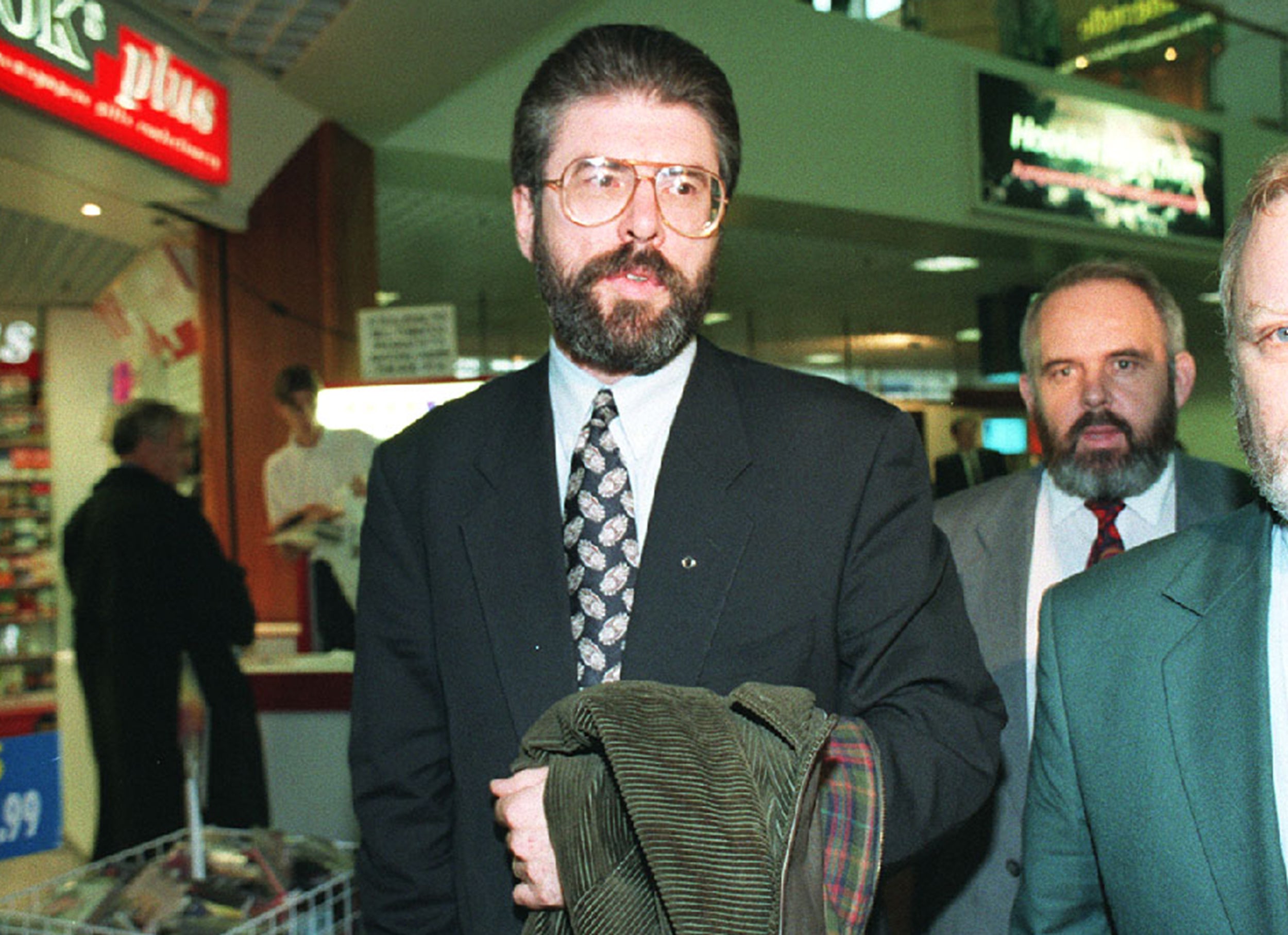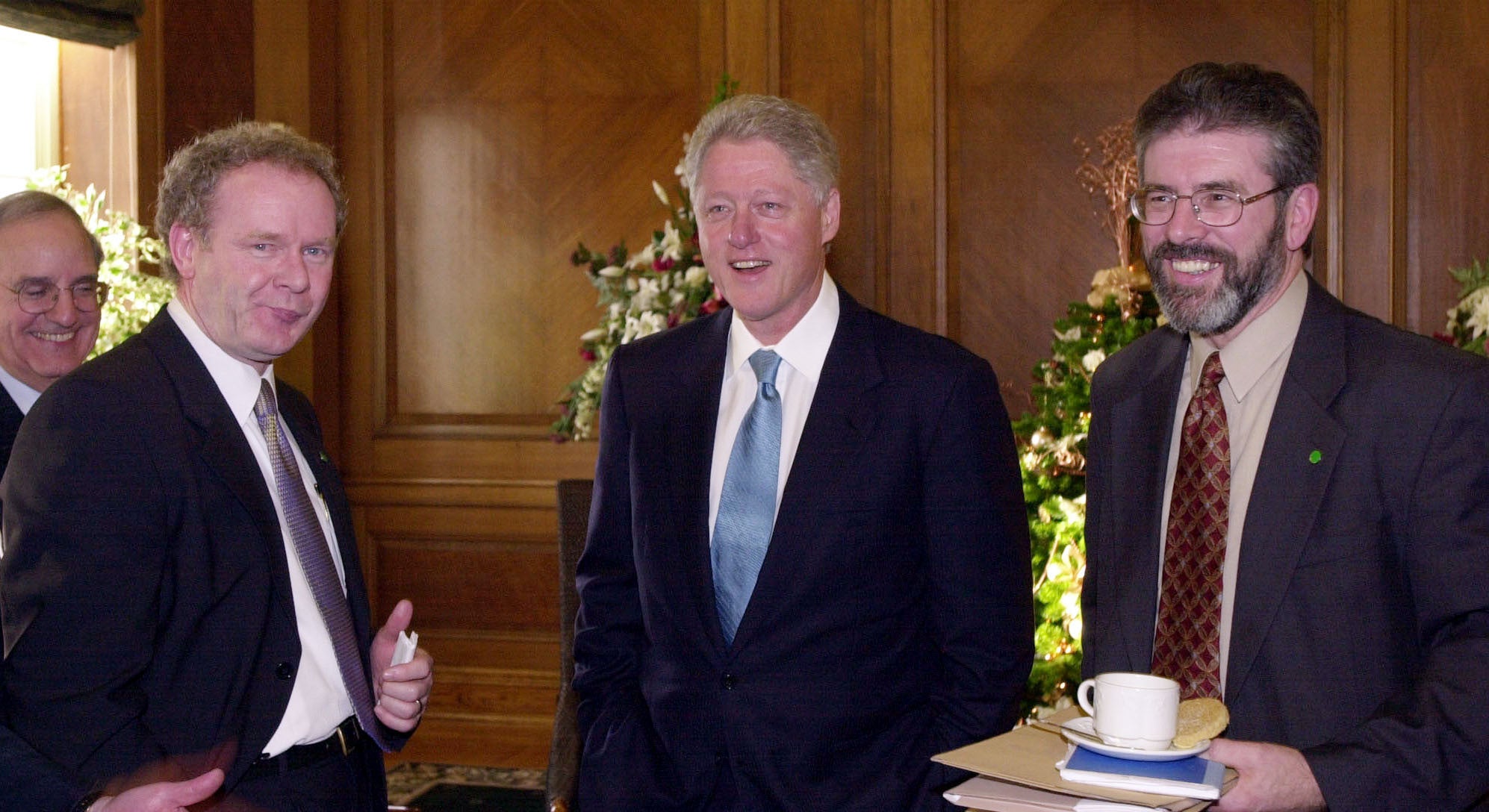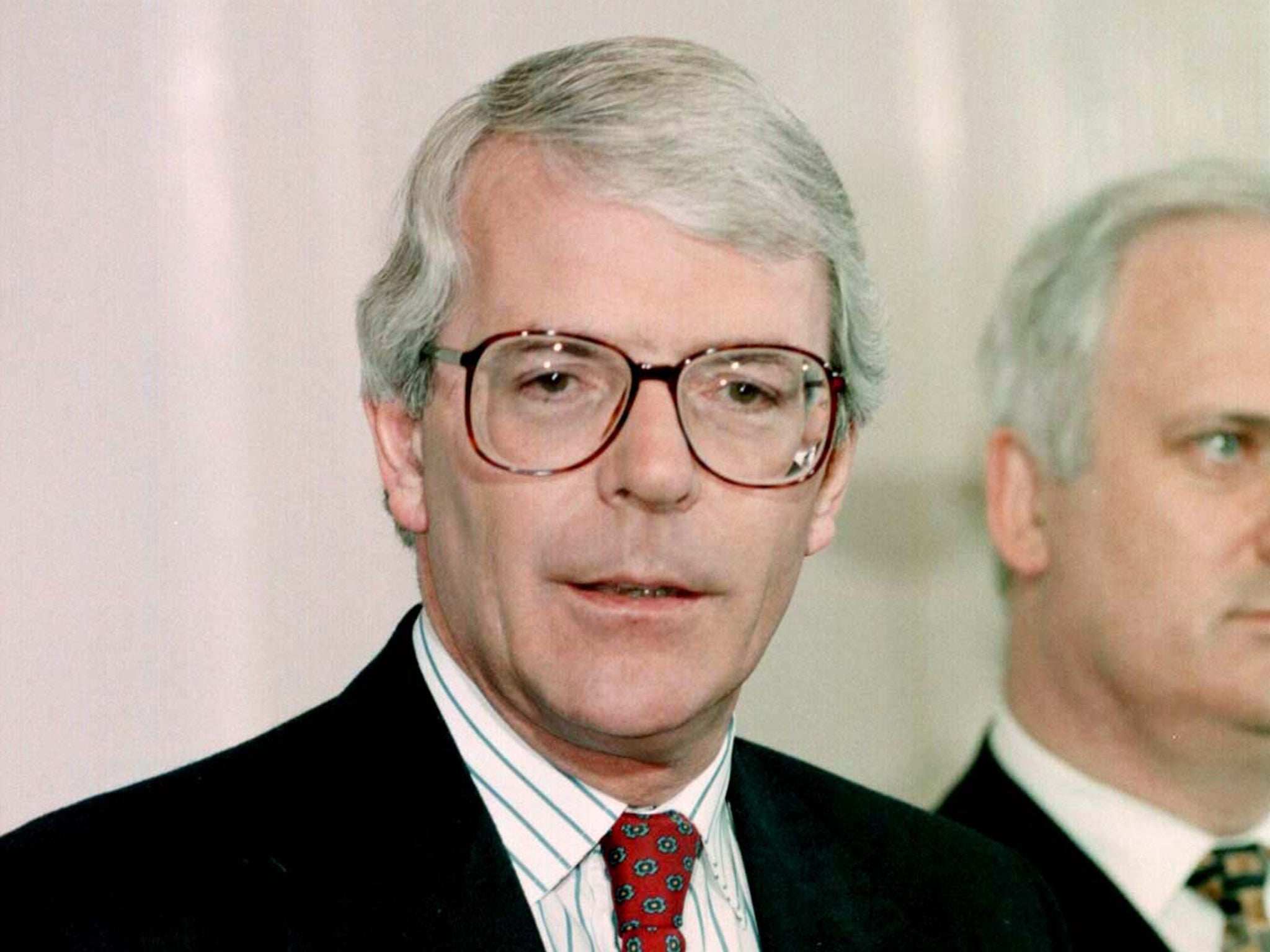John Major government sent blistering notes to Clinton administration after Gerry Adams got US visa, cabinet papers show
‘The movement in which Gerry Adams has long been a leading figure has murdered not only thousands of its own countrymen,’ John Major's private secretary wrote to Bill Clinton’s national security adviser

Your support helps us to tell the story
From reproductive rights to climate change to Big Tech, The Independent is on the ground when the story is developing. Whether it's investigating the financials of Elon Musk's pro-Trump PAC or producing our latest documentary, 'The A Word', which shines a light on the American women fighting for reproductive rights, we know how important it is to parse out the facts from the messaging.
At such a critical moment in US history, we need reporters on the ground. Your donation allows us to keep sending journalists to speak to both sides of the story.
The Independent is trusted by Americans across the entire political spectrum. And unlike many other quality news outlets, we choose not to lock Americans out of our reporting and analysis with paywalls. We believe quality journalism should be available to everyone, paid for by those who can afford it.
Your support makes all the difference.British government fury at President Bill Clinton’s decision to allow Gerry Adams into the US has been laid bare in newly released official files.
The Sinn Fein president was controversially granted a 48-hour visa for a headline-grabbing visit to New York to speak at a conference on Northern Ireland between 31 January and 2 February in 1994.
The full extent of the fury that John Major and his government directed towards the Clinton administration over the visa decision is finally revealed in the newly released cabinet papers in the National Archives.
Mr Major’s private secretary Roderic Lyne sent US national security adviser Tony Lake a blistering note, at a time when Sinn Fein was widely regarded as the political wing of the IRA: “The movement in which Gerry Adams has long been a leading figure has murdered not only thousands of its own countrymen, but also one member of our royal family, one cabinet minister’s wife, two close advisers to Margaret Thatcher and members of parliament, two British ambassadors – and small children in our shopping centres.”
Mr Clinton, who had been president around a year, took “full responsibility” for the decision which was described as a “difficult matter of judgement”, according to the documents.

Mr Major wrote personally to Mr Clinton to express his dismay, telling the president: “Tony Lake will, I am sure, have told you how strongly we disagree with the decision to admit Gerry Adams to the United States.
“He has been closely associated with terrorism for two decades. In the joint declaration, he was offered a route into the democratic process, and into negotiations with us and with the Irish government. He and his movement have not taken it.
“As you will know, the evidence is that the IRA intend to continue their strategy of terrorism, and do not have courage to make peace and compete in the democratic arena.”
Bill Clinton was under pressure from influential Irish-American politicians in the US, most notably Senator Edward “Teddy” Kennedy, who was named in multiple documents as instrumental in pushing for Mr Adams’s admission.
In a letter to the president in January 1994, John Kerry – later Barack Obama’s secretary of state – Daniel Patrick Moynihan and Christopher Dodd (both Democratic politicians) made the case for Mr Adams’s visit.
The letter said: “While no one can be certain that a visa for Mr Adams will result in the IRA’s accepting the condition established by Ireland and Great Britain for participation in the peace process, the United States cannot afford to ignore this possibility and miss this rare opportunity for our country to contribute to peace in Northern Ireland.”

Such arguments, however, did not impress the Major government.
In his note to Mr Lake, Mr Lyne observed: “It is sad, paradoxical, and misguided of the Kennedys, having lost two brothers to acts of terror, to be pressing you to admit a terrorist leader without an end to terrorism or even a commitment to end terrorism.”
A cable dated 10 February from Peter Westmacott, then a British diplomat in Washington, added details garnered from Jane Holl, who was then in the US National Security Council, who had been present during a subsequent phone call between Mr Major and Mr Clinton.
It reads: “Dr Holl said that the discussion on Northern Ireland was very brief. The president had raised the subject. He had taken full responsibility for the decision to give Adams a visa.
“It had been a difficult matter of judgement on which the two governments had evidently differed.”
Also attached to the bundle was a missive from Canberra to the Foreign Office suggesting that a potential visit by Mr Adams to Australia may go ahead in light of the US decision.
Mr Lyne scrawled on the typed document: “I hope the Aussies realise this would be the end of Anglo/Australian relations!”
Mr Adams was denied entry to Australia in 1996 but visited in 1999 following the Good Friday Agreement of 1998.
He has always denied being a member of the IRA or engaging in paramilitary violence.
Some commentators have since suggested that his New York visit, by generating so much worldwide attention, really did put him in a strong position to advocate the path of politics over violence.
On 31 August 1994, seven months after Mr Adams visited the US, the IRA announced “a complete cessation of military operations”. John Major responded by declaring: “We are beyond the beginning, but we are not yet in sight of the end.”
His caution appeared justified when the IRA ended its ceasefire by planting a bomb in London’s Docklands, which exploded on 9 February 1996, killing two and injuring more than 100.
Efforts at reconciliation, however, resumed. Mr Adams became a key part of the negotiations that led to him, Tony Blair and Irish Taoiseach Bertie Ahern signing the Good Friday Agreement, which was a key step in bringing relative peace to Northern Ireland.
PA
Join our commenting forum
Join thought-provoking conversations, follow other Independent readers and see their replies
Comments